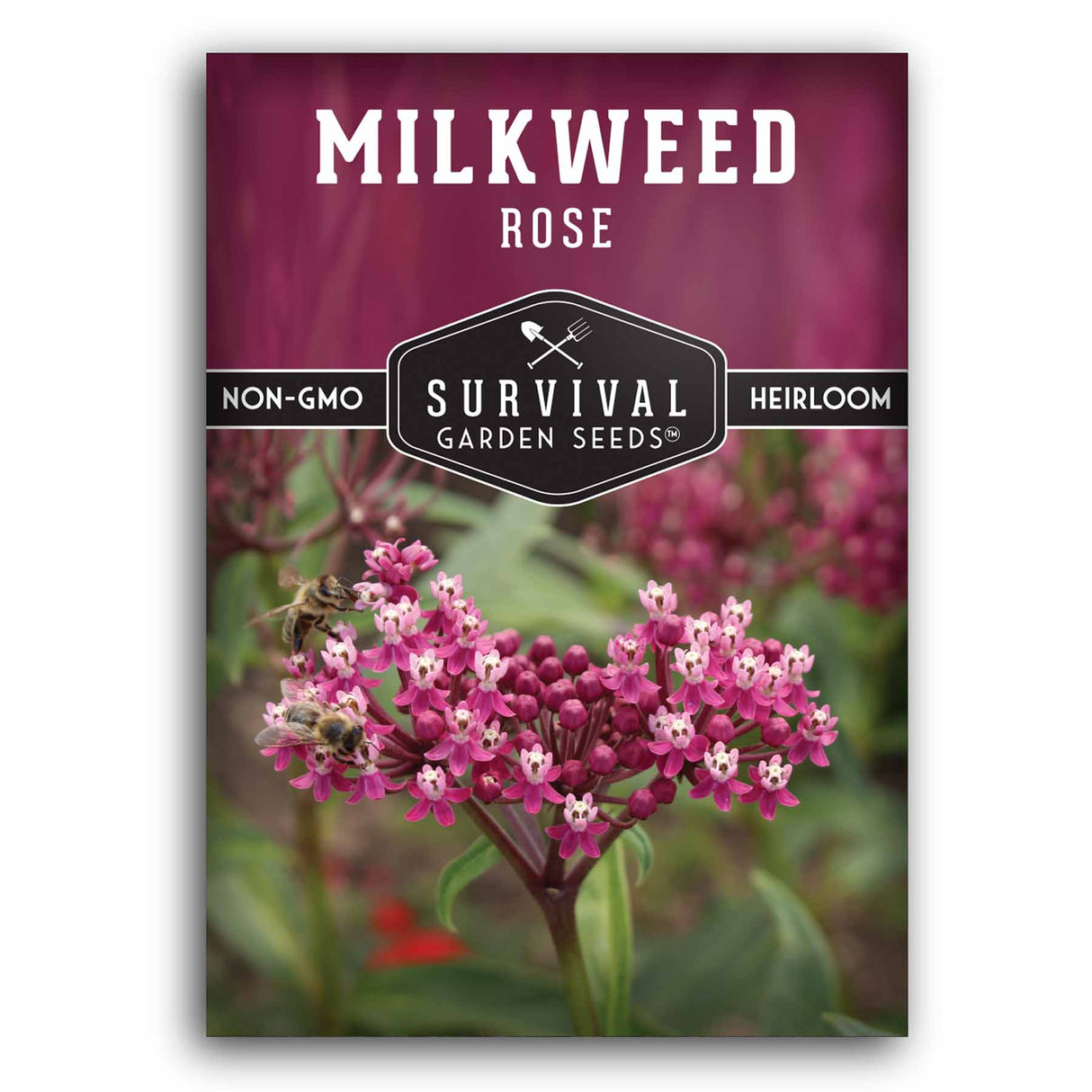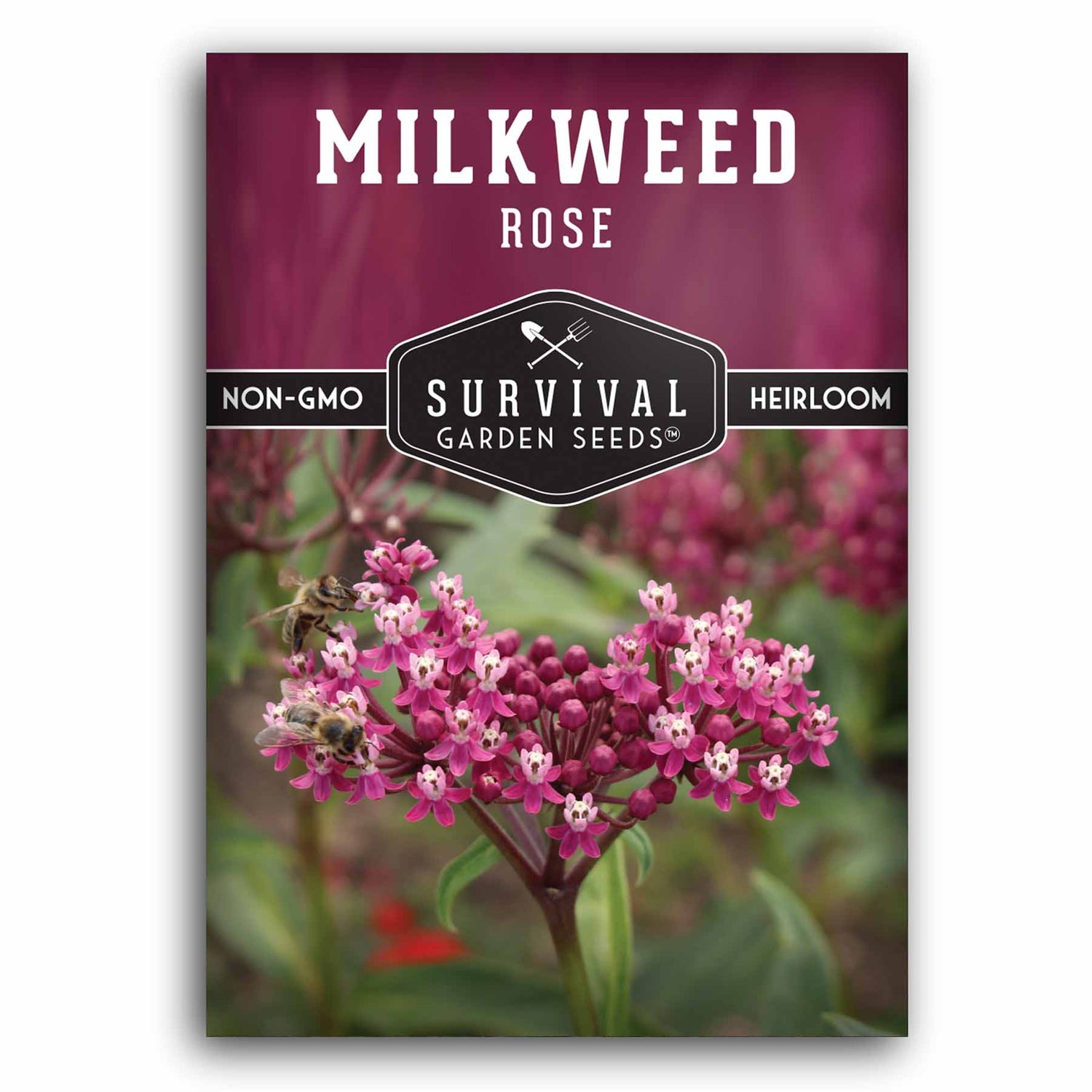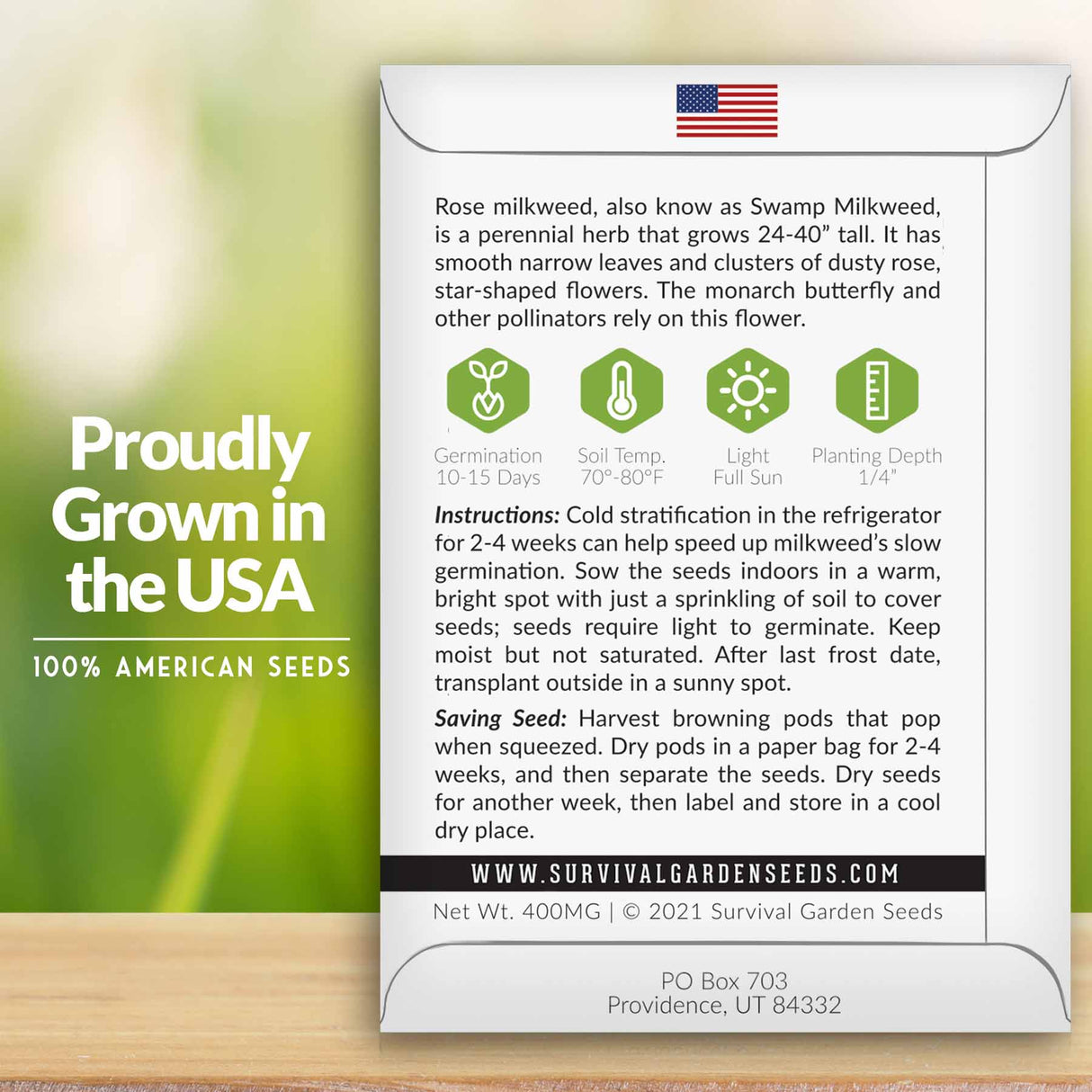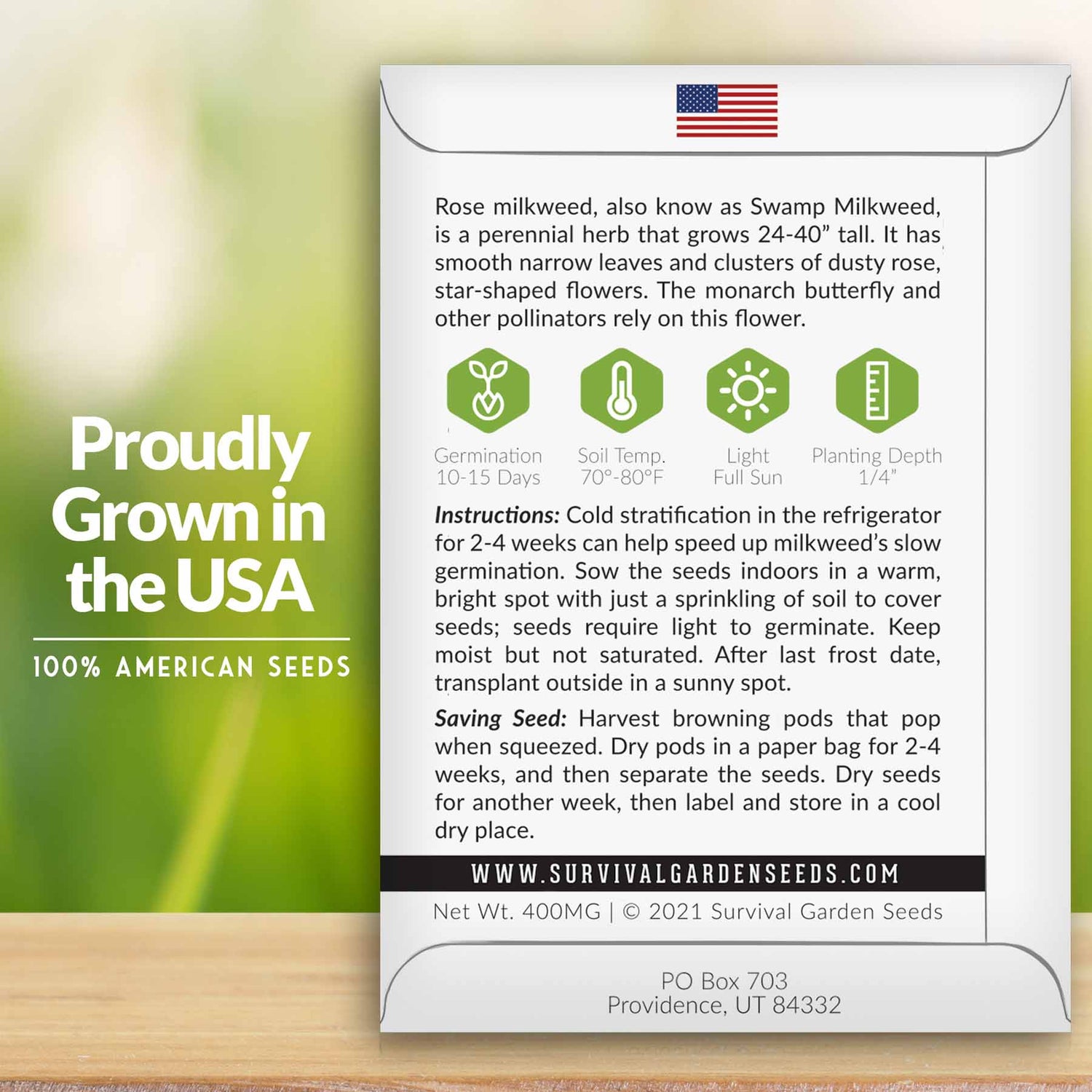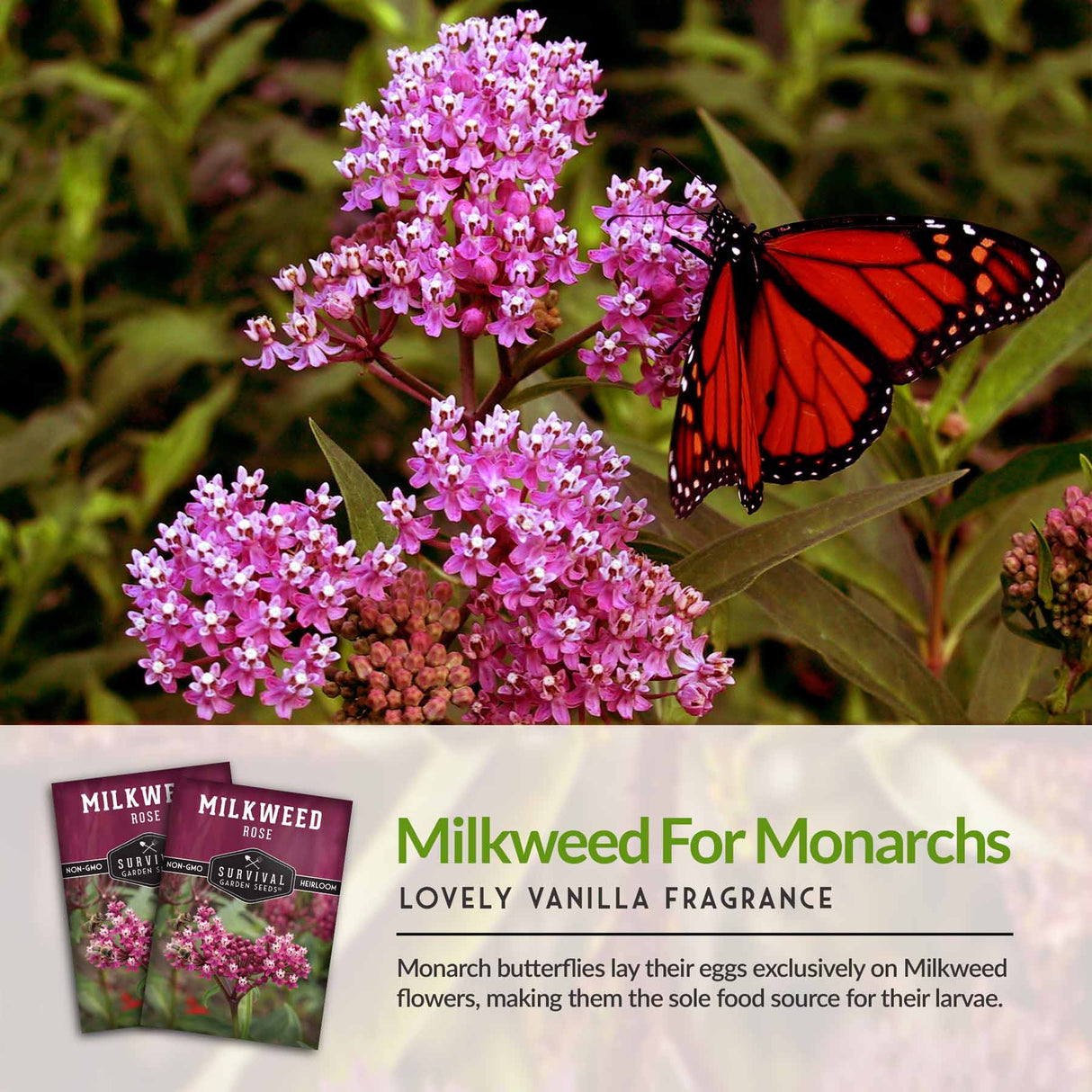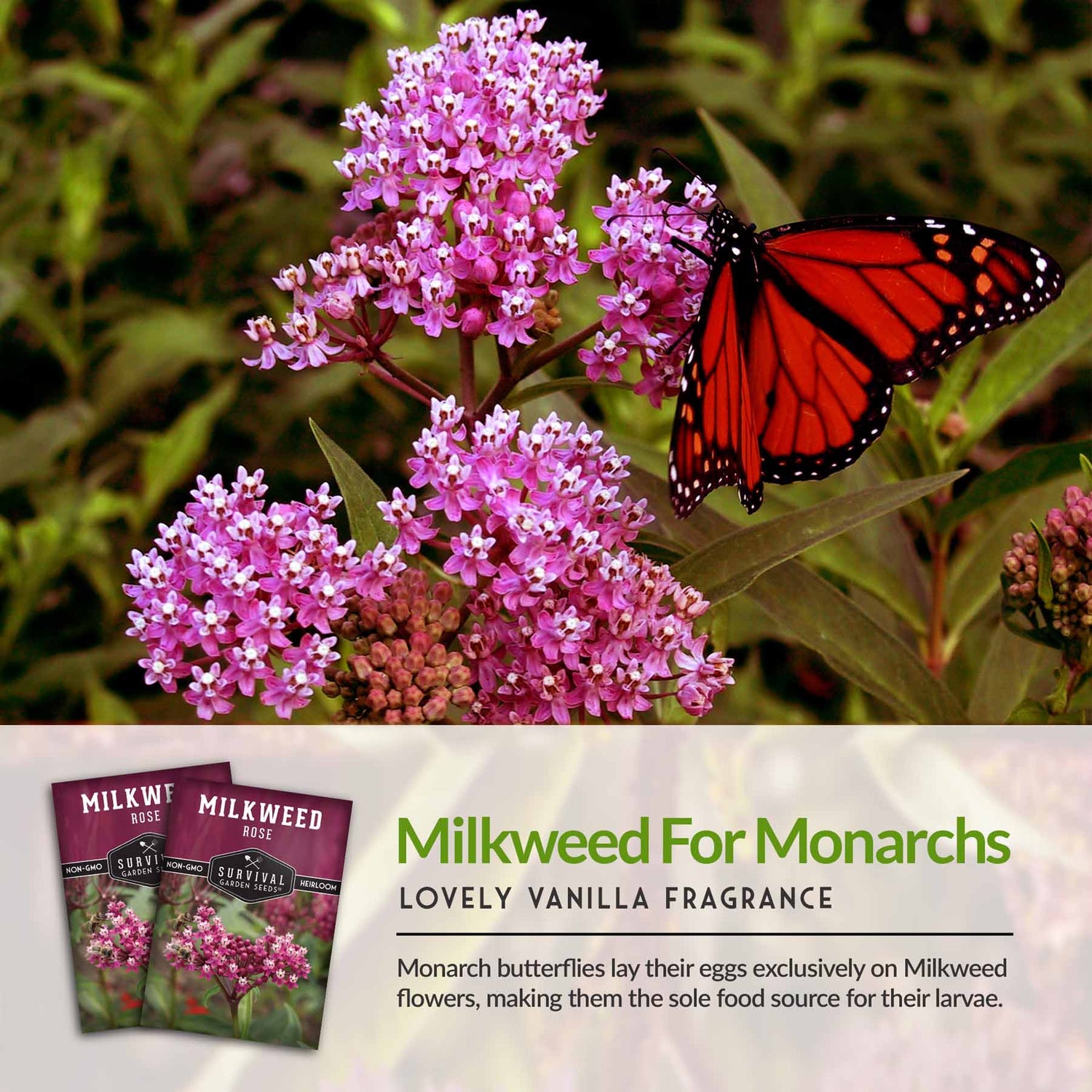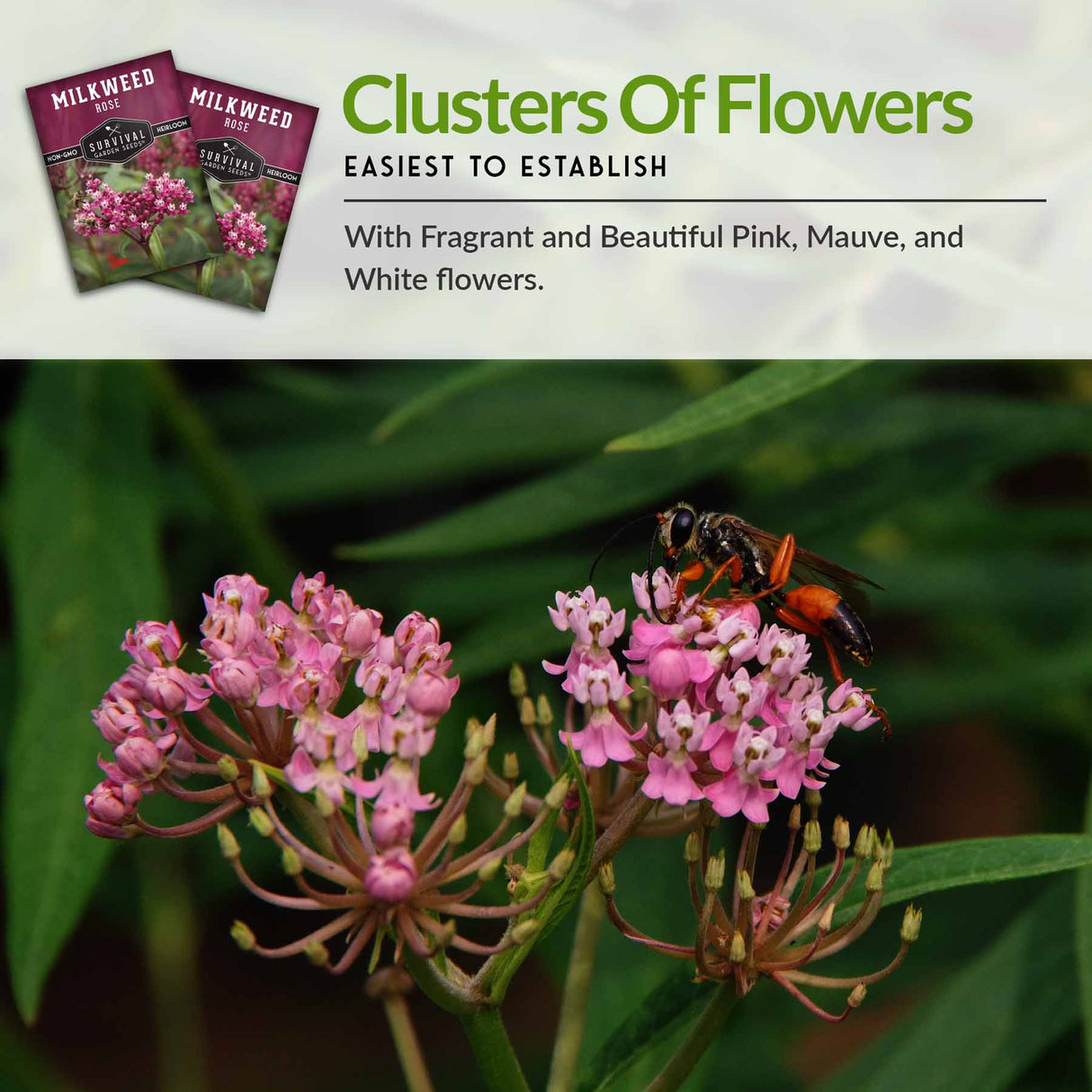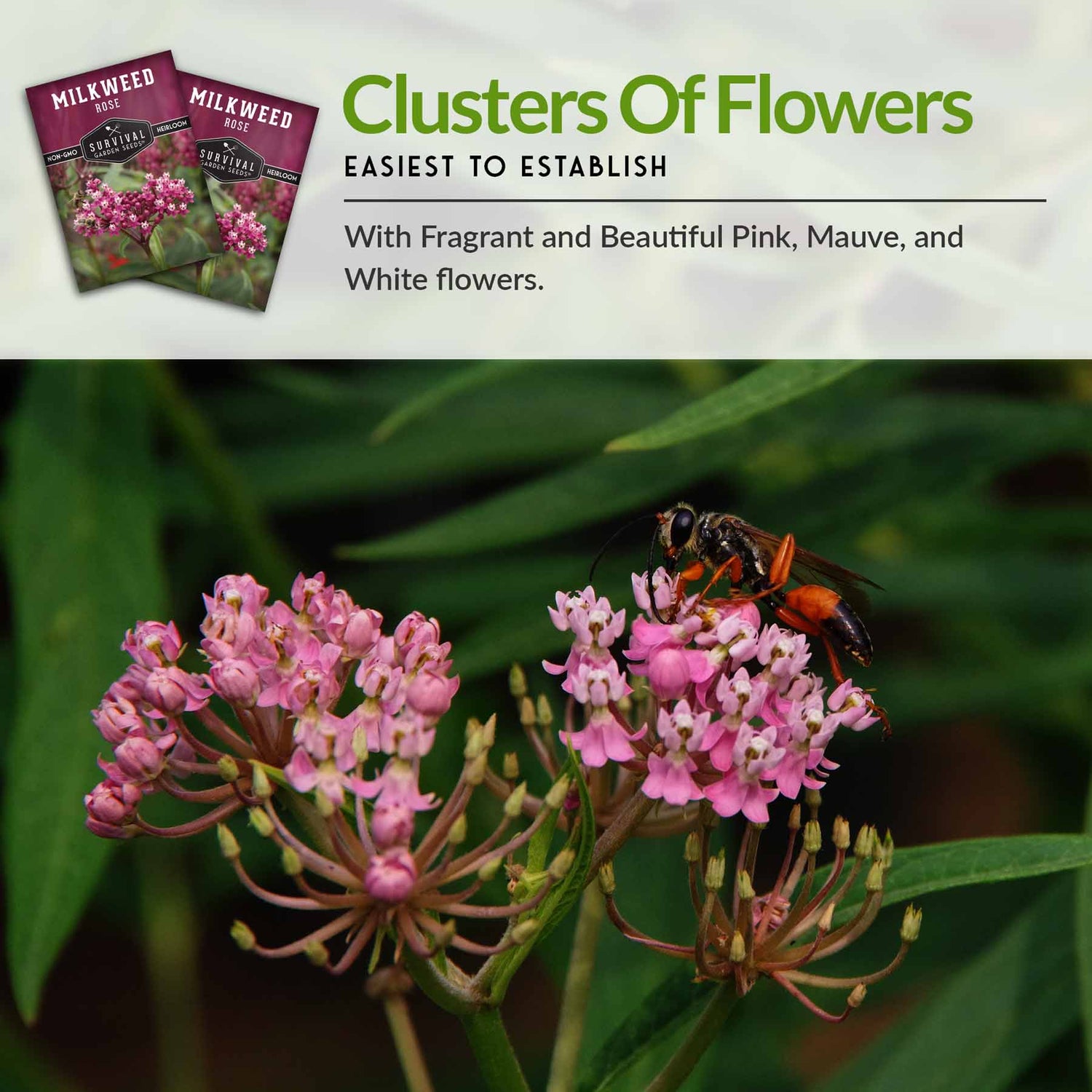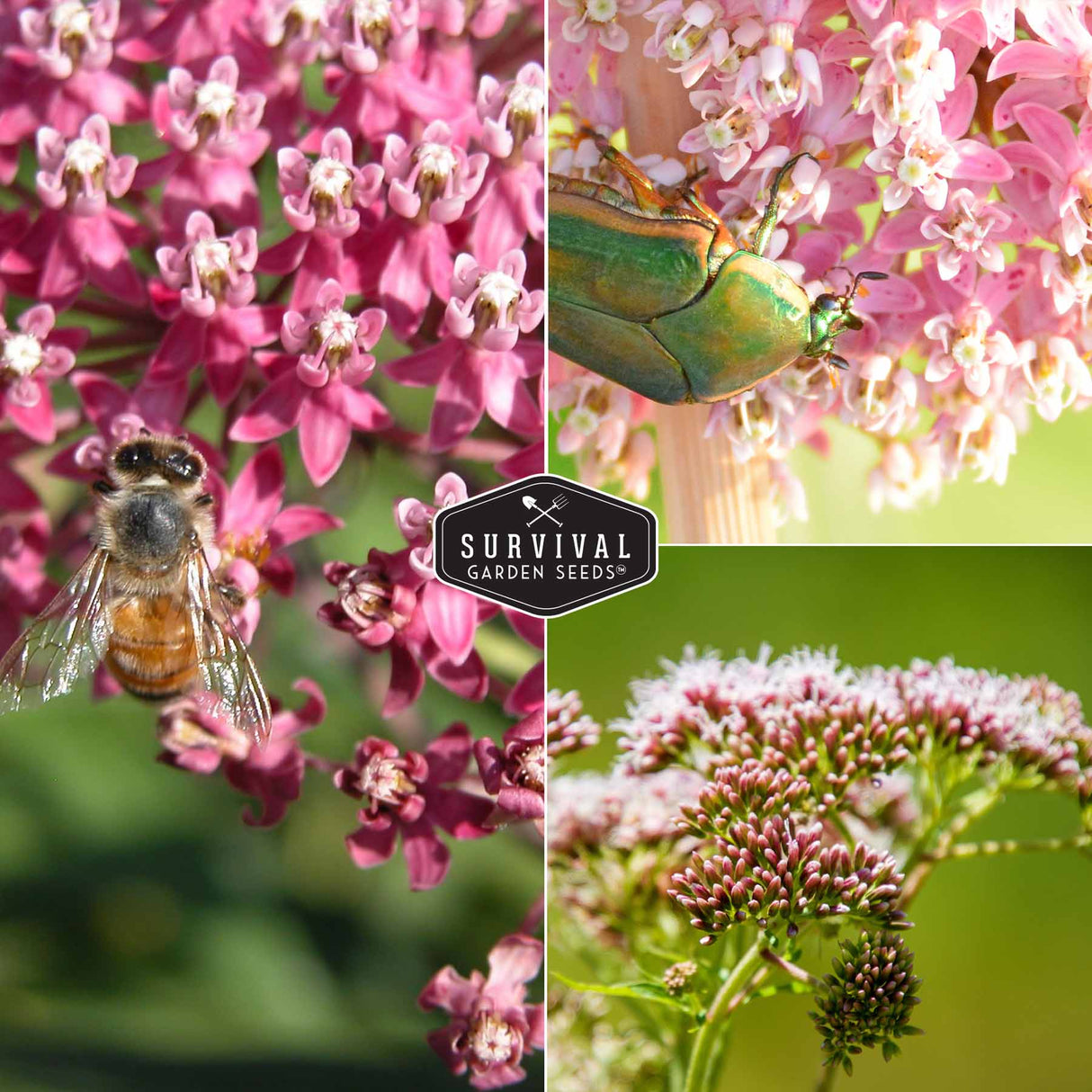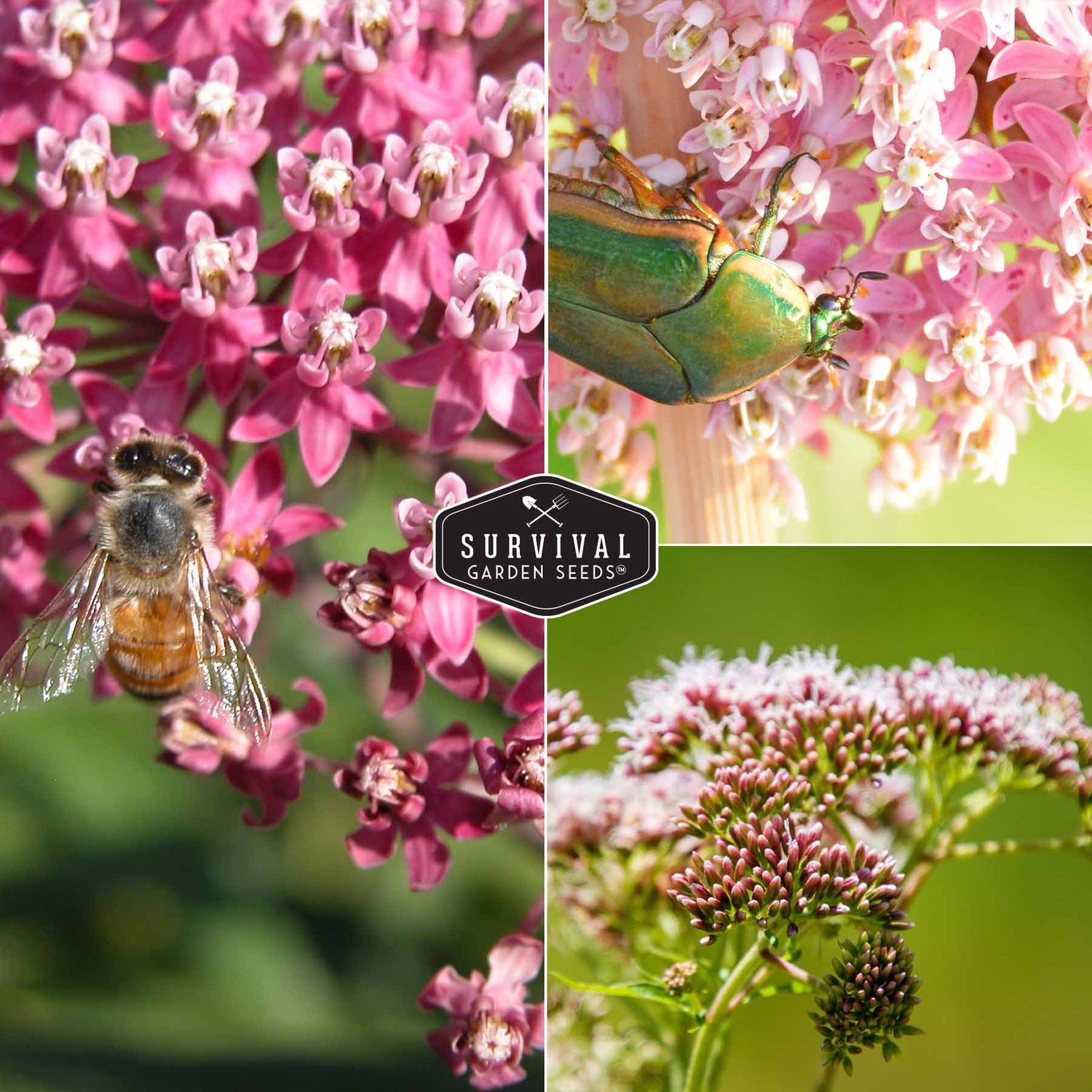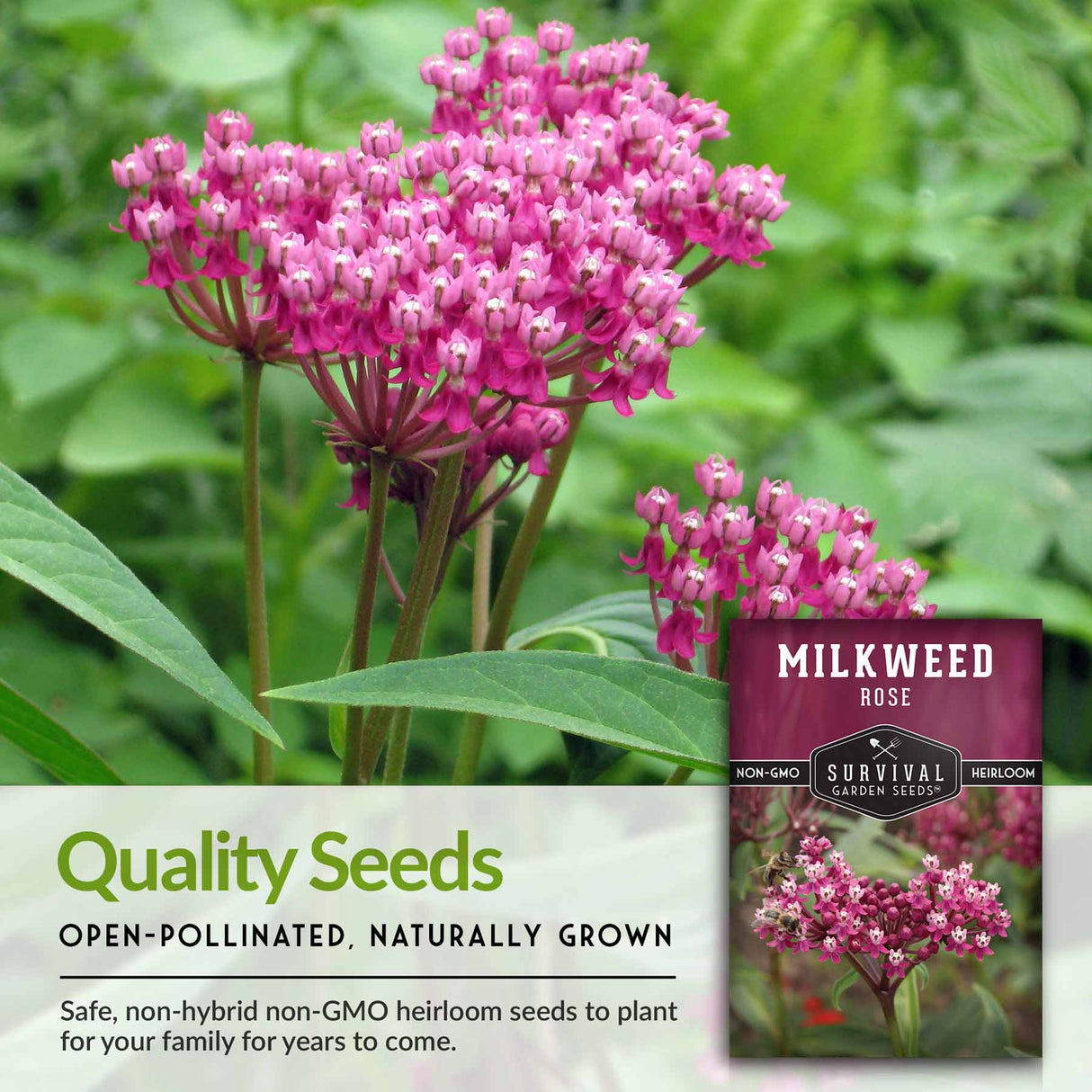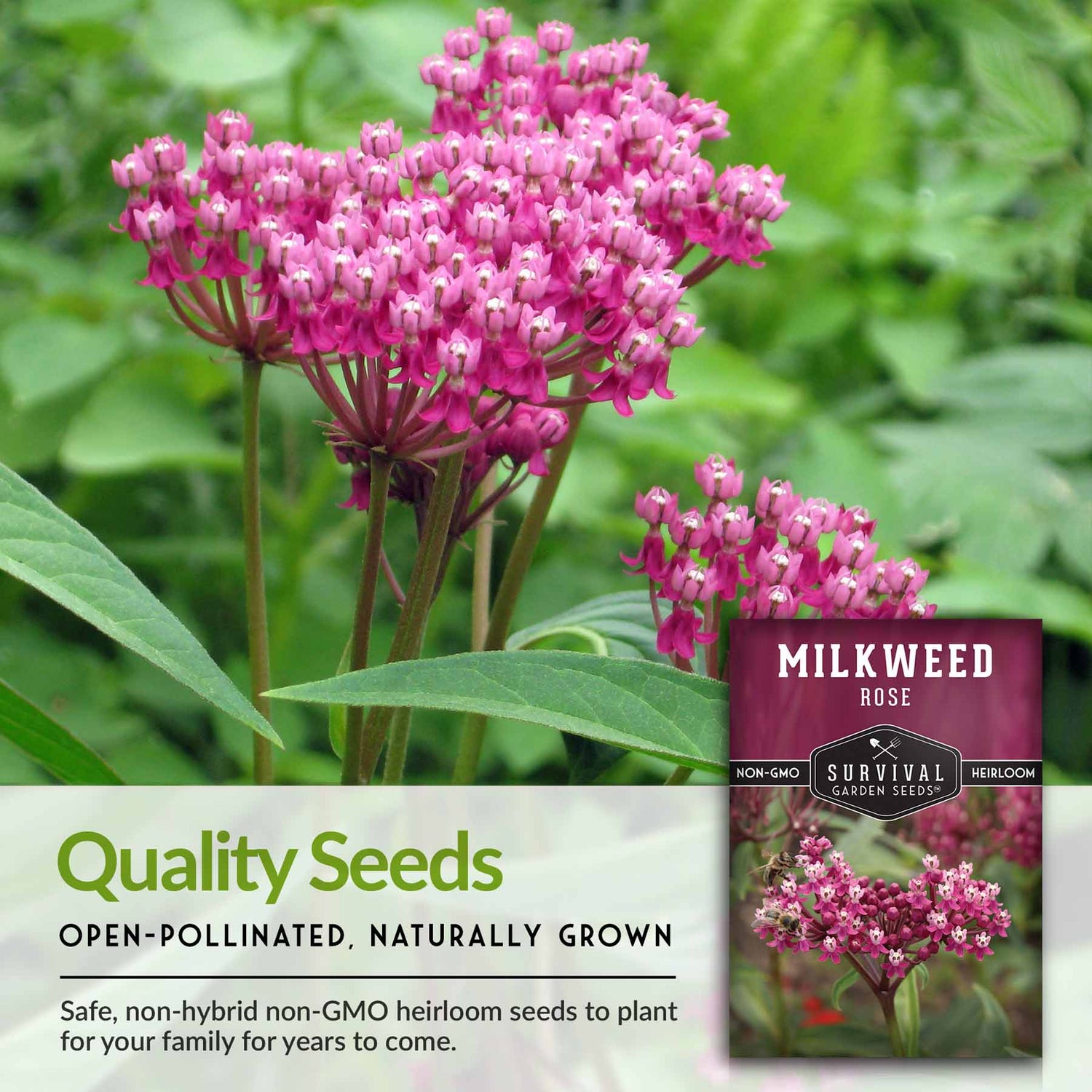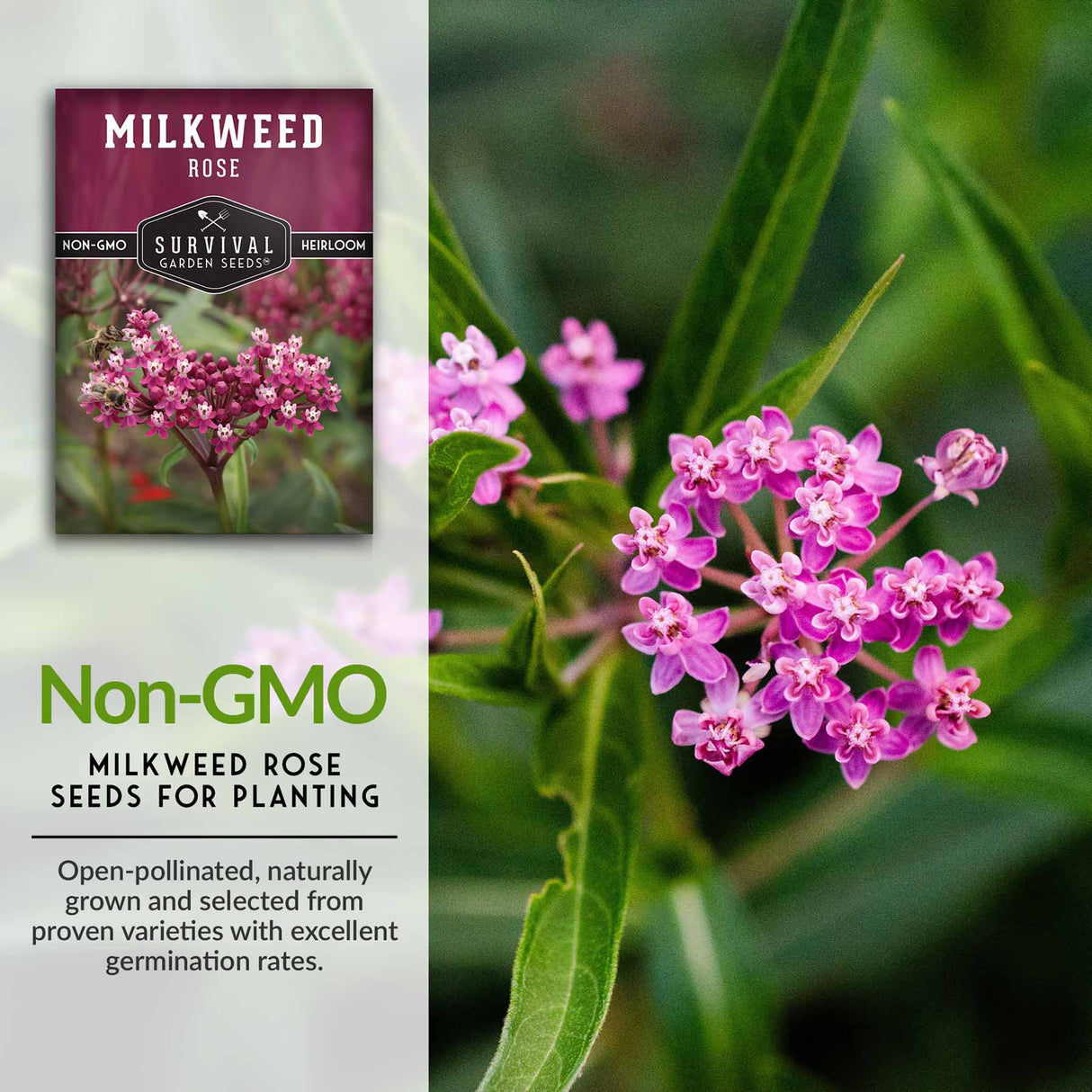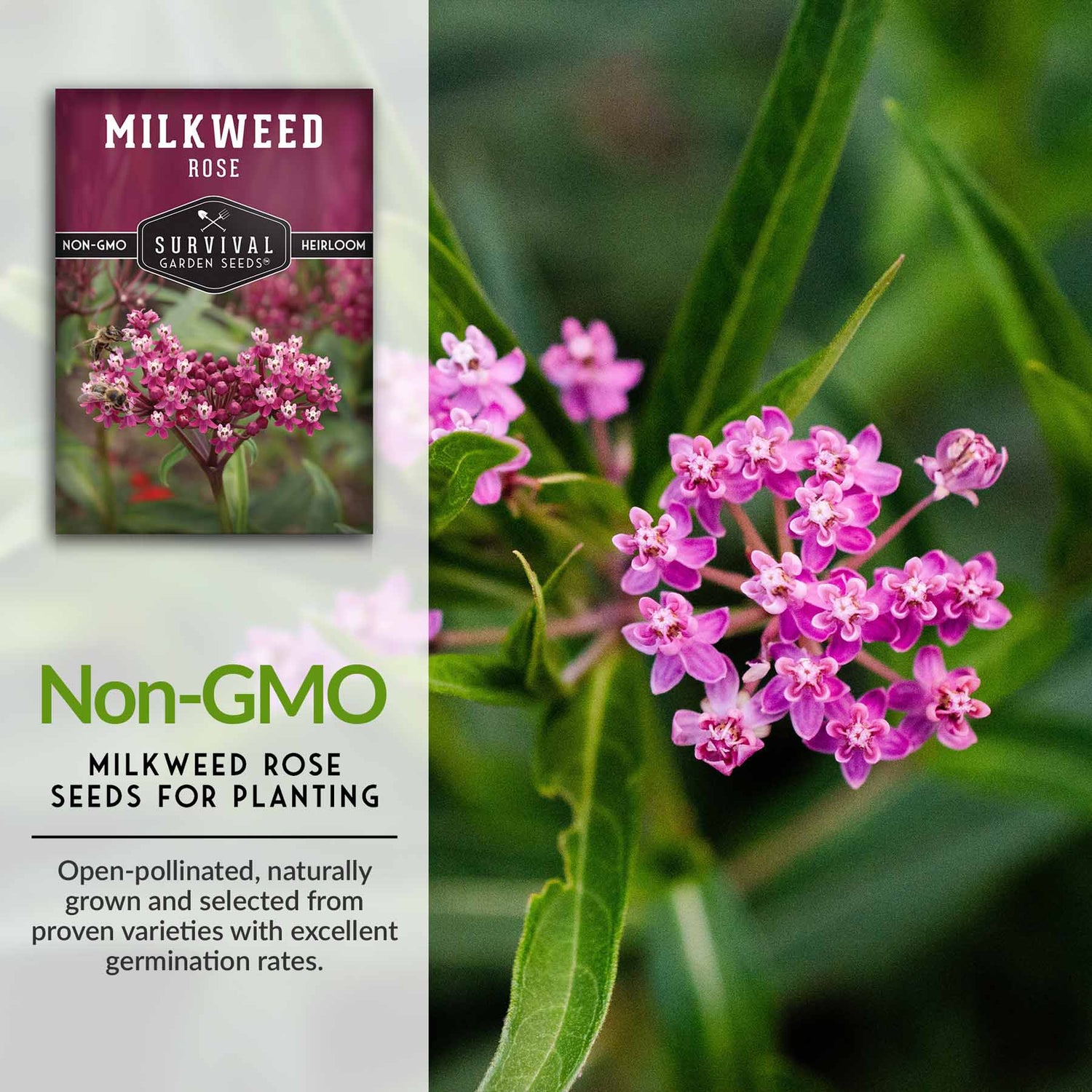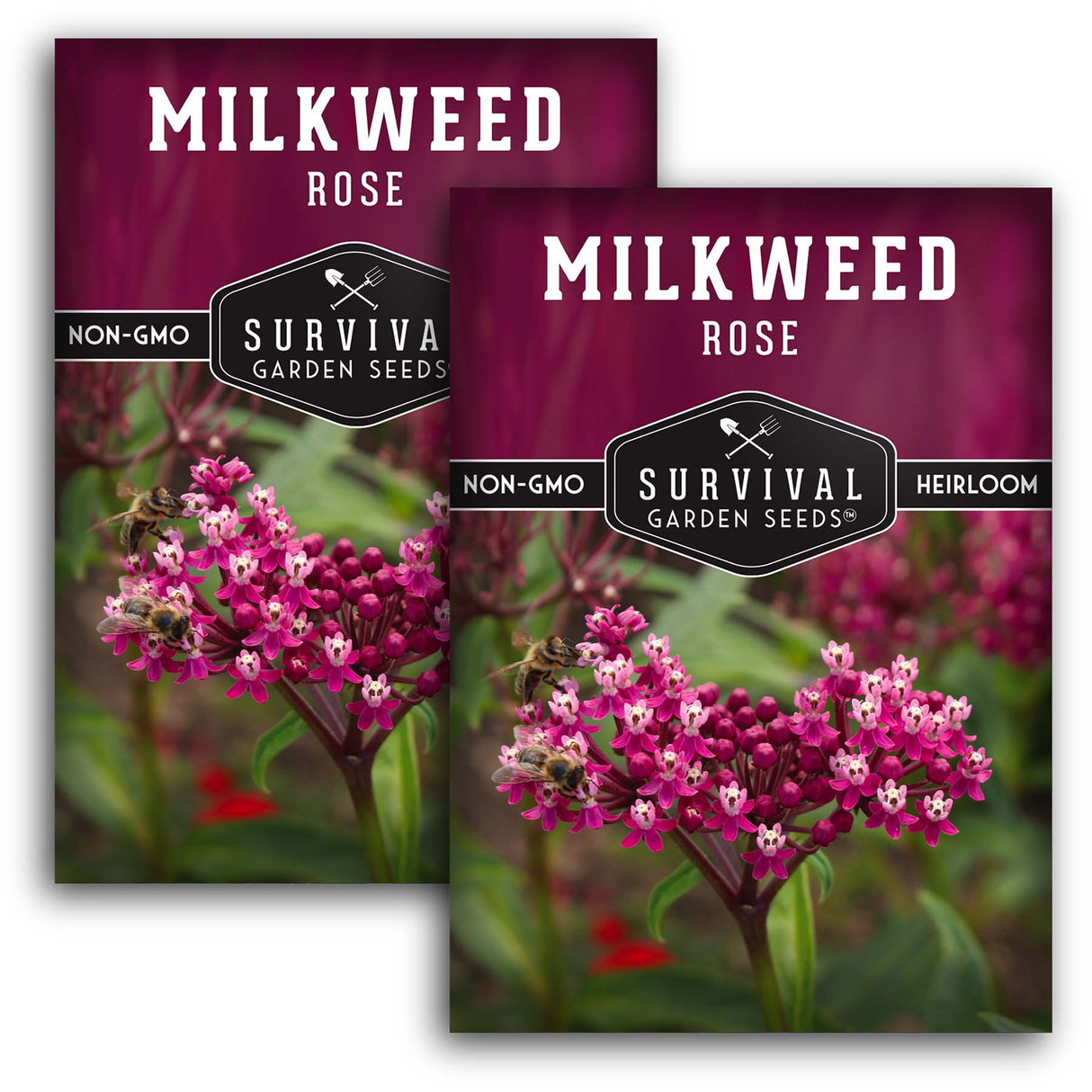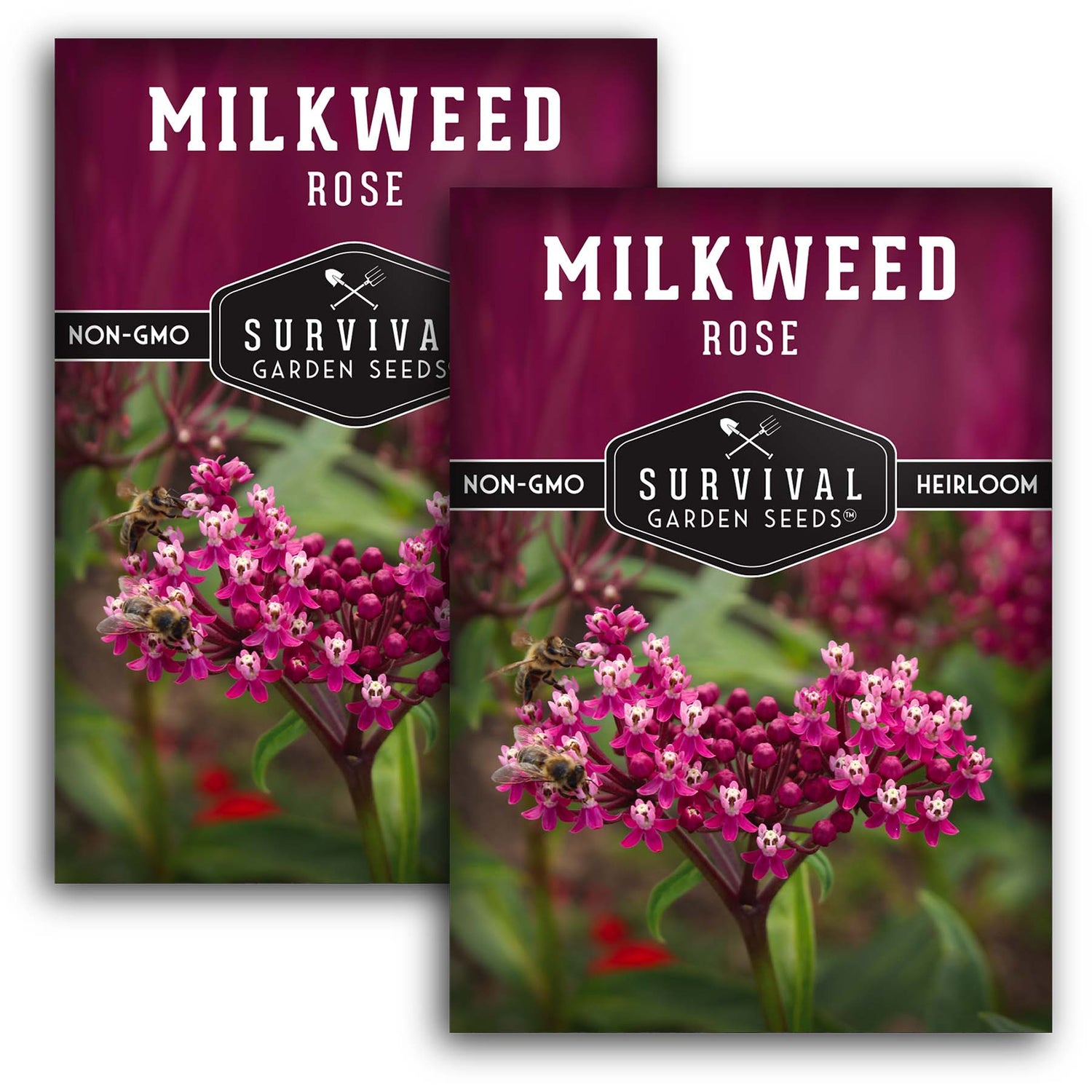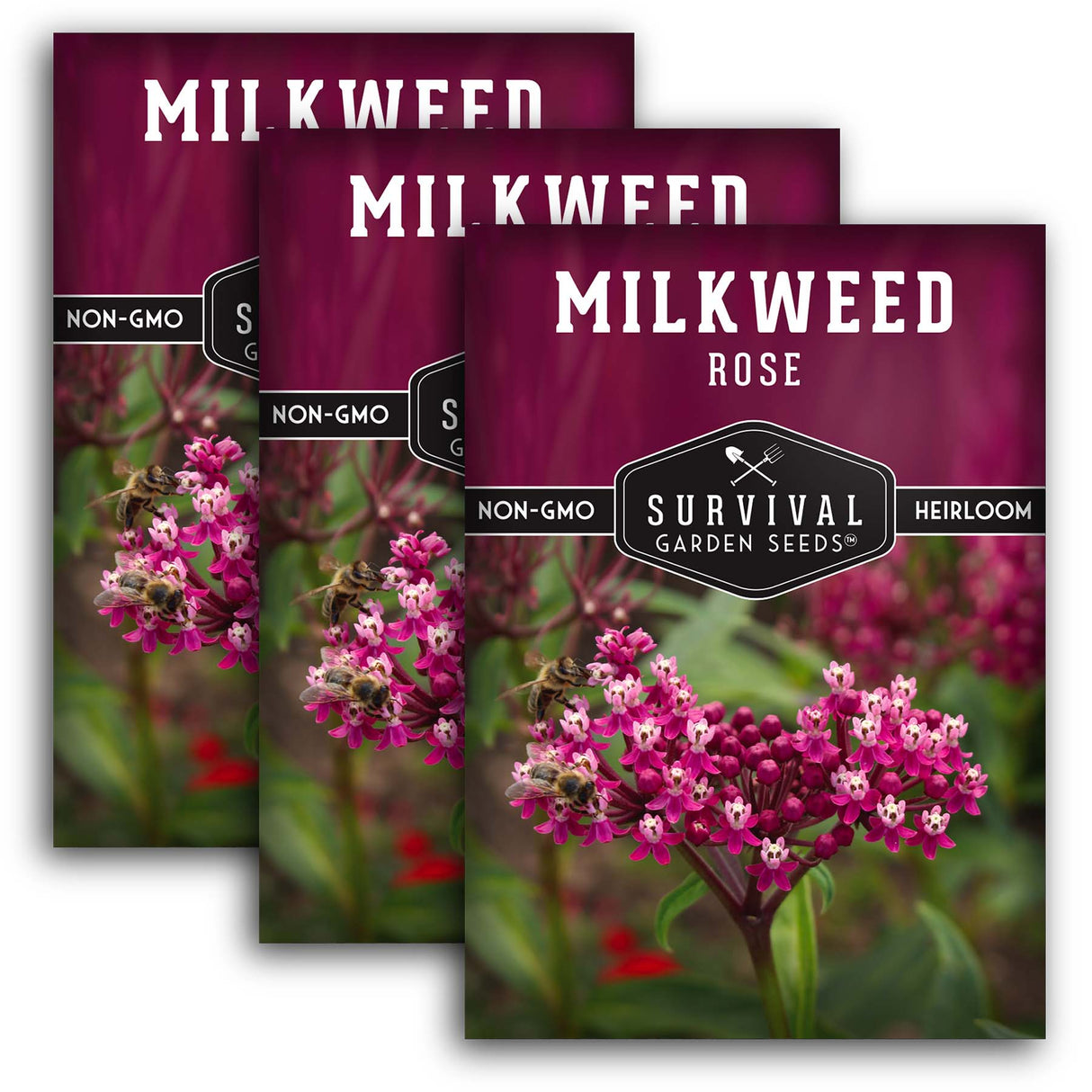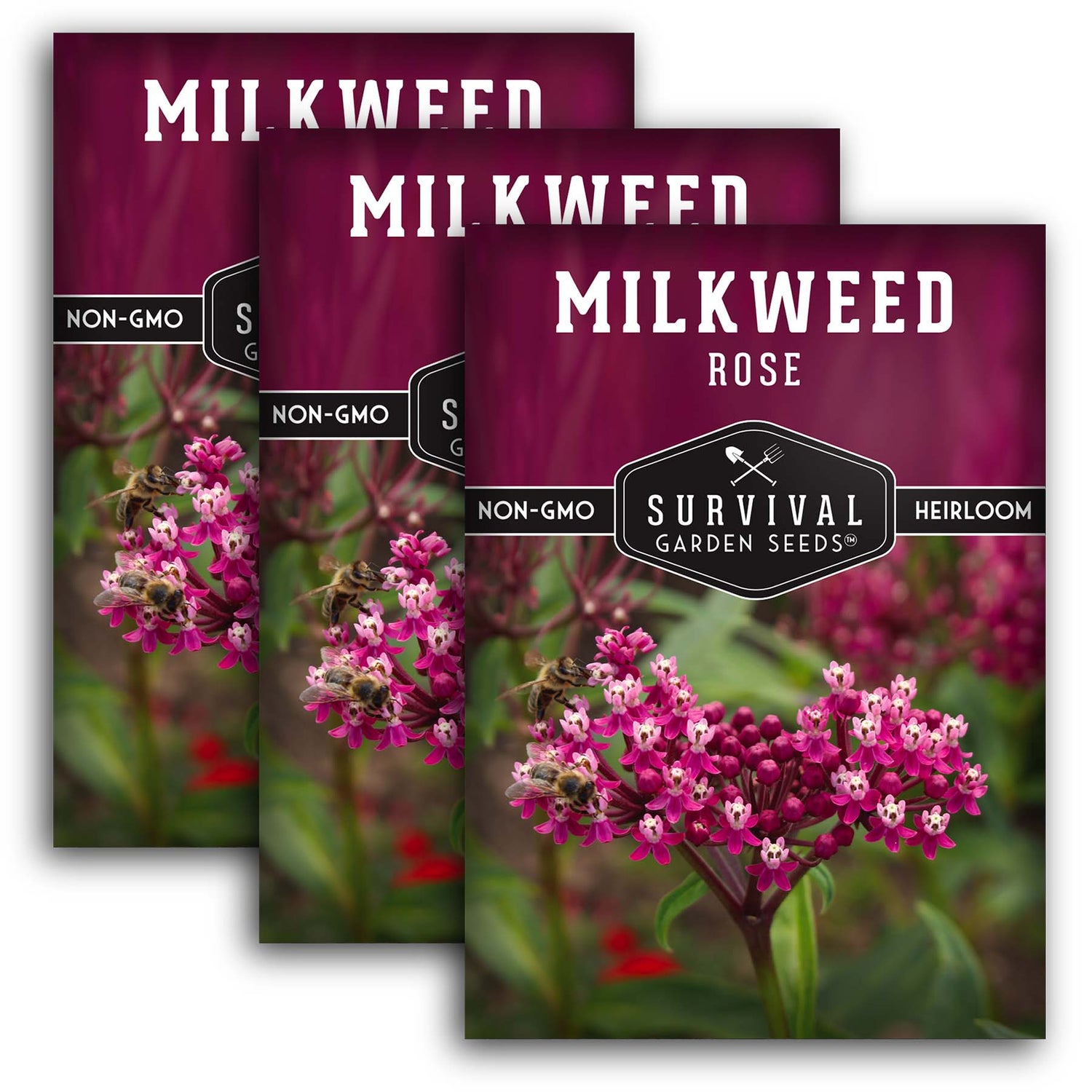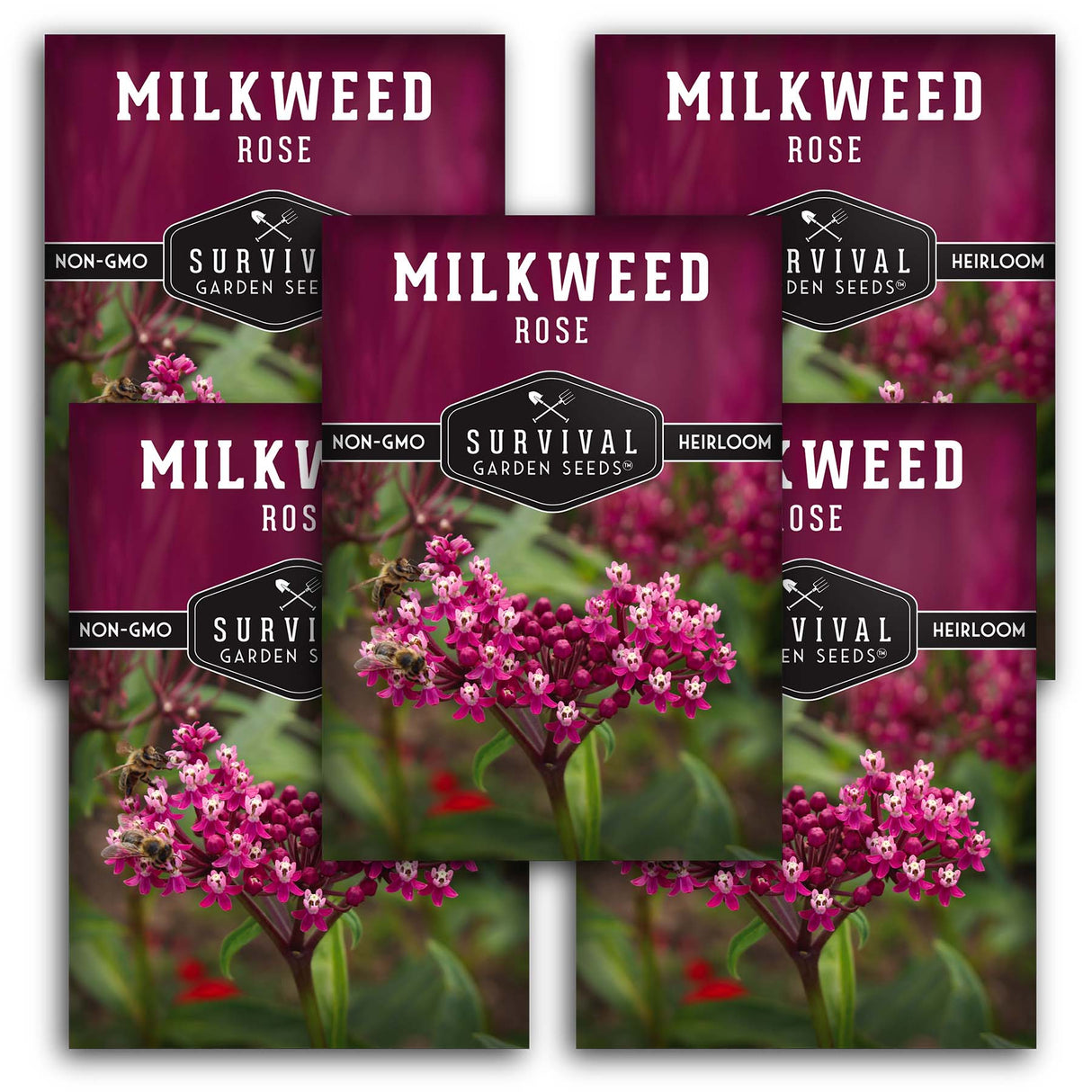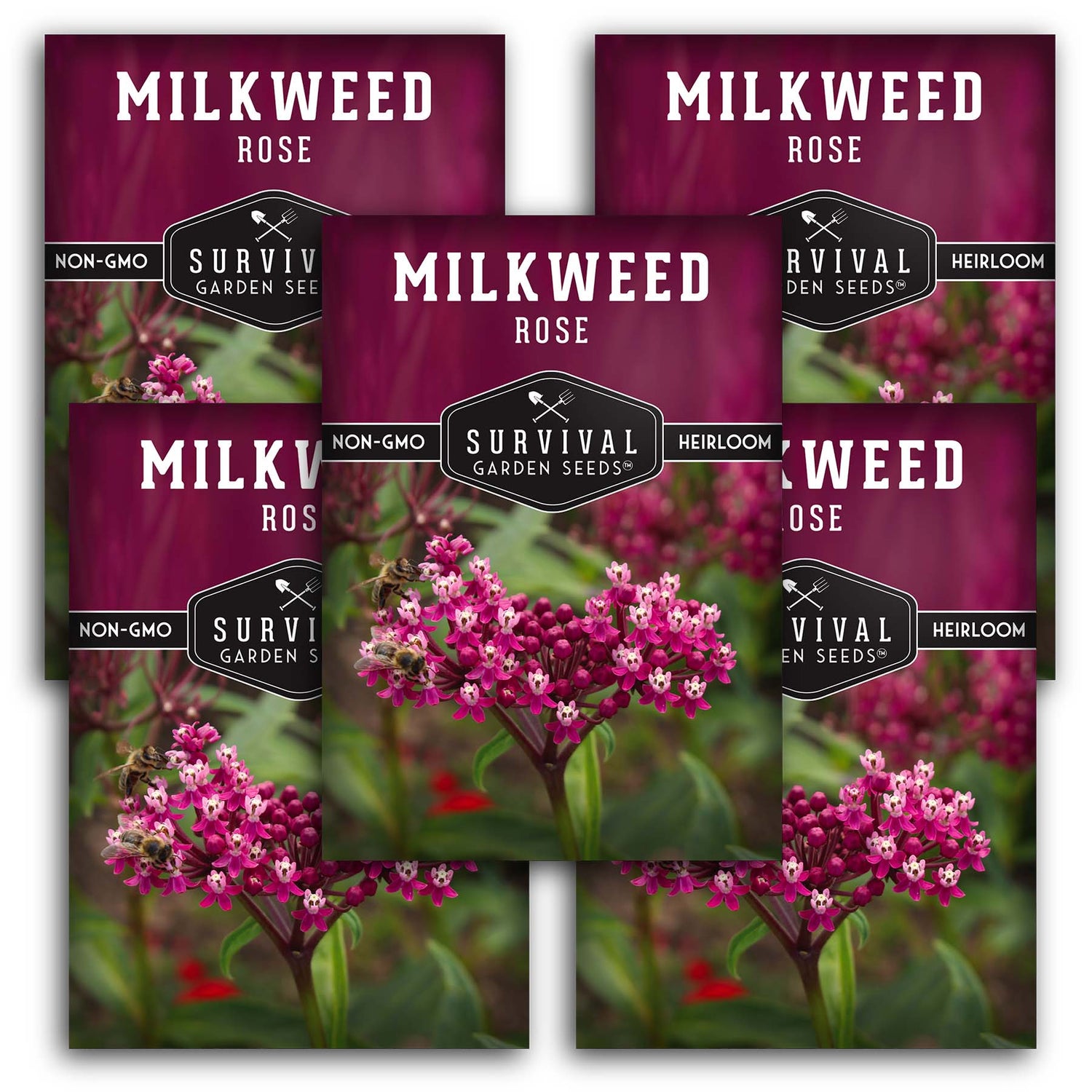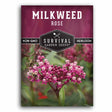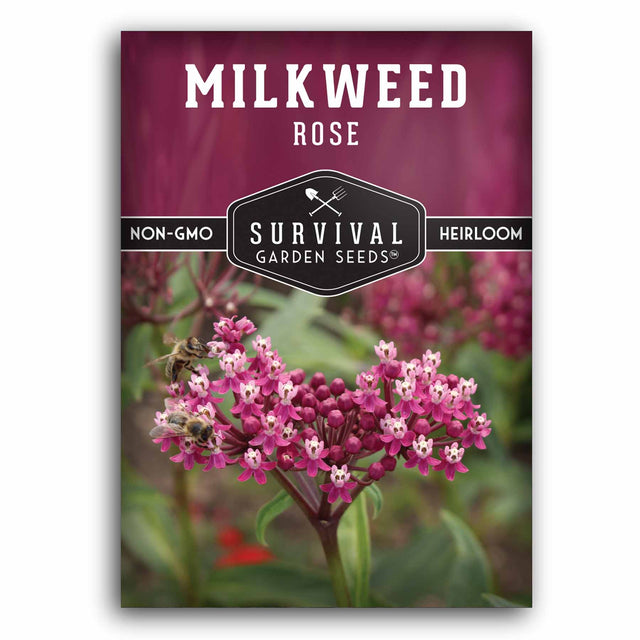Rose Milkweed Seeds (Asclepias incarnata) – Swamp Milkweed Monarch Host Plant with Pink Blooms for Pollinator Gardens
Heirloom - Non-GMO - Reliable Germination
Rose Milkweed Seeds (Asclepias incarnata) – Swamp Milkweed Monarch Host Plant with Pink Blooms for Pollinator Gardens - 1 Packet is backordered and will ship as soon as it is back in stock.
Couldn't load pickup availability
Support Monarch butterflies and build a thriving pollinator habitat with Rose Milkweed seeds, also known as Swamp Milkweed (Asclepias incarnata). This native perennial grows 24–40 inches tall and features smooth, narrow leaves topped with clusters of dusty rose to purple, star-shaped flowers. Rose Milkweed is an essential plant in the Monarch life cycle, providing nectar for adults and vital habitat and food for caterpillars.
Well-suited for moist soils and wetland-style plantings, Rose Milkweed offers strong ecological value without aggressive spreading. Its upright growth and soft pink blooms make it a beautiful and practical addition to pollinator gardens, rain gardens, and naturalized areas.
Swamp Milkweed with Distinct Beauty and Balance:
Known by several common names—including rose milkweed, red milkweed, and marsh milkweed—Asclepias incarnata is native across most of North America. Unlike Common Milkweed, it is more clump-forming and easier to manage in garden settings.
Plant characteristics:
- Native perennial wildflower
- Grows approximately 24–40 inches tall
- Narrow leaves with clusters of dusty pink to purple flowers
- Thrives in moist soils, wetlands, and rain gardens
- Deer and rabbit resistant
Why Customers Love Rose Milkweed Seeds:
- Essential host plant for Monarch butterflies and caterpillars
- Provides nectar for bees, butterflies, and hummingbirds
- Less aggressive spread than Common Milkweed
- Ideal for moist or wet garden areas
- Supports conservation-focused and pollinator-friendly landscapes
How to Use / How to Grow:
Sow seeds in moist, well-draining soil in full sun to partial sun. Rose Milkweed performs especially well in consistently moist locations such as rain gardens or near water features. Keep soil evenly moist during germination and early growth. Once established, plants are hardy and long-lived.
Cold Stratification for Better Germination:
Rose Milkweed seeds benefit from cold stratification. To improve germination rates, place seeds on a damp paper towel, roll it up, and store it in the refrigerator for 2–3 weeks before sowing. This process mimics winter conditions and encourages stronger, more reliable sprouting.
Net Wt. 400MG
Heirloom Flower Seeds
All of our seeds are open-pollinated, non-GMO, heirloom varieties with tested germination rates
Specifications
Specifications
-
Botanical Name
-
Seasonality
-
Planting Zones
-
Light
-
Soil Temp for Germination
-
Germination Time
-
Planting Depth
-
Plant Size
-
Days to Bloom
-
Growing Instructions
-
Seed Saving Instructions
-
Seed Count (approximate)
Payment & Security
Your payment information is processed securely. We do not store credit card details nor have access to your credit card information.
Why Choose Survival Garden Seeds
At Survival Garden Seeds, we believe in preparing today for tomorrow’s peace of mind. That’s why we offer only heirloom, non-GMO, and untreated seeds you can trust to nourish your family and support a sustainable lifestyle. As a family-owned American company, we’re committed to providing seeds that grow strong and true—helping you cultivate health, resilience, and beauty in your garden.
Frequently Asked Questions
Are your seeds heirloom and open-pollinated?
Are your seeds heirloom and open-pollinated?
Yes. All of our seeds are heirloom, open-pollinated varieties, which means they can produce seeds that grow true to type and are suitable for seed saving.
You can learn more about open-pollinated, heirloom, and non-GMO seeds in our Survival Garden Training blog.
Are your seeds non-GMO?
Are your seeds non-GMO?
Yes. All Survival Garden Seeds are 100% non-GMO. Our seeds are open-pollinated heirloom varieties and are never genetically modified.
Are your seeds treated with chemicals?
Are your seeds treated with chemicals?
No. Our seeds are completely untreated and free from chemical coatings, fungicides, or synthetic treatments.
How do I know my seeds are fresh?
How do I know my seeds are fresh?
Every seed packet includes a packed-for date, and we germination-test each seed lot before packaging to ensure high viability.
What is the shelf life of these gardening seeds?
What is the shelf life of these gardening seeds?
Most seeds remain viable for 3 to 5 years or longer when stored properly in a cool, dry place away from light and moisture.
In what USDA hardiness zones can I grow your seeds?
In what USDA hardiness zones can I grow your seeds?
Our varieties are selected to grow successfully across USDA Hardiness Zones 3 through 10. Each packet includes variety-specific planting guidance and germination tips.

